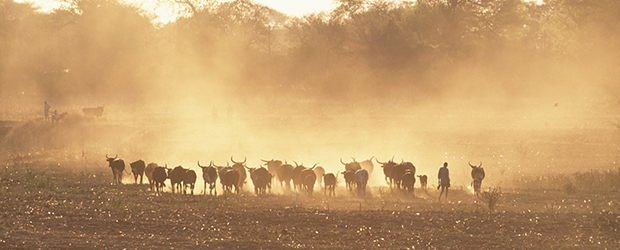West Africa farmers against EU economics, international competition

AFK Insider | 20 Jan 2015
West Africa farmers against EU economics, international competition
By Soumaila Diarra AFKI
Professional organizations of farmers in West Africa fear being overwhelmed by industrial and agrarian products from the EU countries. According to Ibrahima Coulibaly, leader of the Malian farmers’ organization the National Coordination of Peasant Organizations (CNOP), Economic Community of West African States (ECOWAS) will open their frontiers to EU products in 2015. This move follows the signing of an Economic Partnership Agreement (EPA) by leaders last October.
One month after the signing, African farmer organizations decided to combat this agreement, which they say will jeopardize unprepared small-scale farmers in West Africa.
Coulibaly says within each ECOWAS country, local actions are being undertaken to inform authorities about the negative impacts that the agreement may have on local industries and farming systems.
“For 10 years we are fighting against the EPA, but the ECOWAS heads of states betrayed their peoples,” Coulibaly told AFKInsder. “We invited President Ibrahim Boubacar Keita to avoid signing the agreement in its current estate.”
In an African, Caribbean and Pacific Group of States (ACP) press release published last December, the ACP leaders announced tightening their economic cooperation with Europe in 2015, which is supposed to be the beginning of an important economic partnership.
Representatives of the EU and the ACP countries — which include ECOWAS countries — who met in Brussels said the policy shift will be a unique opportunity for the ACP group and the EU countries to show they have efficient relationship that must be preserved.
The EU countries promised more money to finance development projects in the ACP countries, according to the EU Development Commissioner, Neven Mimica. But the Malian farmers’ representatives say the EU countries, which are well organized, try to impose on West Africa free-trade through the EPA.
“What they want is a free-trade area between Europe and the ECOWAS. That would be a good thing if we had something that could be sold in European markets,” Coulibaly added.
Endangering cattle breeding and agriculture
According to the confederation of Burkina Faso farmers (CPF), the ECOWAS country members should stop the process of the partnership, which at the moment is starting a new tax payment on the goods entering the continent. Bassiaka Dao, president of the organization believes local farmers will lose out with the EPA as rich and poor countries cannot have equal opportunities when it comes to creating economic competition.
In all of the ECOWAS countries, a new taxation system will be introduced in 2015. It allows the traders to pay only 35 percent of taxes on the goods from foreign countries. This is not a sufficient rate, according to Dao who according to Le Pays pledges to raise the payment up to 50 percent on the products — rice, milk, wheat, meat — that can endanger cattle breeding and agriculture in the West African region.
The West African leaders should suspend the application of the agreement, according to Tiasse Bouare, a parliament member in Mali.
“We have to suspend the process until our countries are well prepared to face the competition,” he told AFKInsider. “If we don’t, all this can lead to complications for the production of the basic elements of local economy.
In Burkina Faso, people mostly fear the consequences of possible speculations on the price of agricultural products like the cereals. According to the main organization representing the country’s farmers, 80 percent of the local population is living from agriculture — but they are not able to supply the international market with competitive products.
In West Africa, many professional organizations think the agreement linking their countries to Europe may hinder the process of the regional integration, which started in 1975. Hence, Burkina Faso CPF is calling on to the leaders of ECOWAS to suspend the new tax system and to review the agreement with the EU countries with the involvement of the farmers’ organizations.
A different scale of international competition?
According to Mamadou Goïta, a Malian activist, the mobilization of farmer organizations is important.
“The agreement could have been signed years before, but it had been delayed by civil society organizations, which has been supported by former Senegal president Abdoulaye Wade. The plan was to end the process in 2007,” he told AFKInsider.
Some activists say the ACP countries have been obliged to sign the agreement in order to benefit money for the development of their countries.
Goïta also said the European Union is imposing to Africa what it refused to the U.S. — requesting a free-trade system with Europe. The activist still wonders why the Doha round of negotiations on cotton failed, despite Europe preaching the values of free-trade.
“At the World Trade Organization, the Europeans and Americans refused to abandon some subsidies that have negative impacts on African cotton producers whose production can’t face the international competition.”





